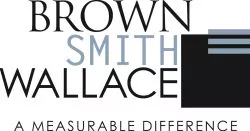A married couple, a college professor and a librarian, failed to persuade the Tax Court that their deductions for home internet service, cell phones, satellite television, and other items were deductible. The court rejected their argument that these expenses were necessary for the pursuit of "general knowledge" (Tanzi, TC Memo 2016-148). In another recent Tax Court decision, however, the court allowed a finance and accounting professional to deduct amounts he paid for an Executive Master of Business Administration (EMBA) program (A. Kopaigora, TC Summary Opinion 2016-35). He showed that his courses improved his managerial and leadership skills, which were appropriate and helpful in his position as a business manager.
Court's Analyses
The court found that the couple's use of the Internet in the pursuit of "general knowledge" was not an ordinary and necessary business expense for a college professor and librarian. It is more in the nature of a personal expense, the court held. The court also found that the expenses for cell phones were not deductible. The taxpayers failed to show to what extent they used the cell phones for business purposes and the court could not, on the evidence before it, estimate and allocate an appropriate amount for a deduction. Further, the court found that the satellite television and professional library expenses were not deductible.
The taxpayer trying to deduct the cost of an executive MBA program, however, had better luck with the Tax Court. He was a well-established finance and accounting business manager at an airport hotel before beginning his EMBA program and he took courses that improved his managerial and leadership skills, skills that were appropriate and helpful in his position as a business manager. Moreover, he continued to be established in this business when his employment was abruptly terminated because he actively sought employment within the corporate finance and accounting fields while he finished his degree. Although the taxpayer was hired by another company soon after he graduated, he performed duties that were substantially similar to those of his former job and nothing in the record suggested that the degree was a prerequisite for the job. In addition, the courses the taxpayer took did not qualify him for a new trade or business because, according to the court, he was not qualified to perform new tasks or activities with the conferral of his degree.
The content of this article is intended to provide a general guide to the subject matter. Specialist advice should be sought about your specific circumstances.

